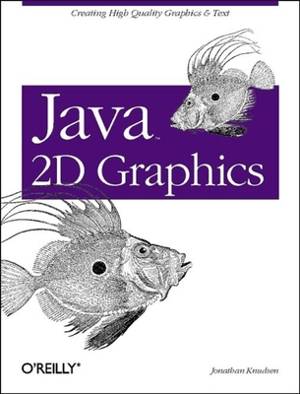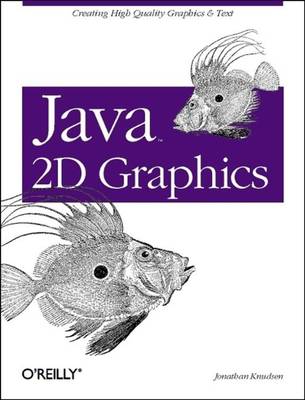
- Retrait gratuit dans votre magasin Club
- 7.000.000 titres dans notre catalogue
- Payer en toute sécurité
- Toujours un magasin près de chez vous
- Retrait gratuit dans votre magasin Club
- 7.000.0000 titres dans notre catalogue
- Payer en toute sécurité
- Toujours un magasin près de chez vous
Description
One weakness of Java has been its graphics capabilities. Java 1.0 and 1.1 only included simple primitives for line drawing: lines could only be one pixel wide, they could only be solid, and there wasn't any good way to draw curves. Font management and color management were also weak. Java 2D (collectively called the 2D API) signals a major improvement in Java's graphics capabilities. It covers many of the classes in Java 1.2 that address graphics handling and improves on many weaknesses that were present in the previous versions of Java. The 2D API allows you to produce high-quality, professional images on a screen or printer. Java 2D Graphics describes the 2D API from top to bottom, demonstrating how to set line styles and pattern fills as well as more advanced techniques of image processing and font handling. You'll see how to create and manipulate the three types of graphics objects: shapes, text, and images. Other topics include image data storage, color management, font glyphs, and printing. Java 2D Graphics assumes no prior knowledge of graphics. Chock full of detailed explanations and examples, this book provides beginning Java programmers with a solid foundation in 2D graphics and helps more advanced programmers create and use high-quality images in their applications. Topics covered in the book include:
- The rendering pipeline
- Shapes and paths
- Geometry
- Painting with solid colors, gradients, and textures
- Stroking paths, including dashed lines
- Transformations: translation, rotation, shearing, and scaling
- Alpha compositing
- Clipping
- Rasterizing and antialiasing
- Fonts and text
- Font metrics
- Glyphs
- Colors and color spaces
- sRGB and CIEXYZ
- ICC color profiles
- Images, image color models, and image data
- Image processing
- Image data storage
- Graphics devices
- Printing
Spécifications
Parties prenantes
- Auteur(s) :
- Editeur:
Contenu
- Nombre de pages :
- 366
- Langue:
- Anglais
- Collection :
Caractéristiques
- EAN:
- 9781565924840
- Date de parution :
- 08-06-99
- Format:
- Livre broché
- Format numérique:
- Trade paperback (VS)
- Dimensions :
- 177 mm x 232 mm
- Poids :
- 580 g

Les avis
Nous publions uniquement les avis qui respectent les conditions requises. Consultez nos conditions pour les avis.






